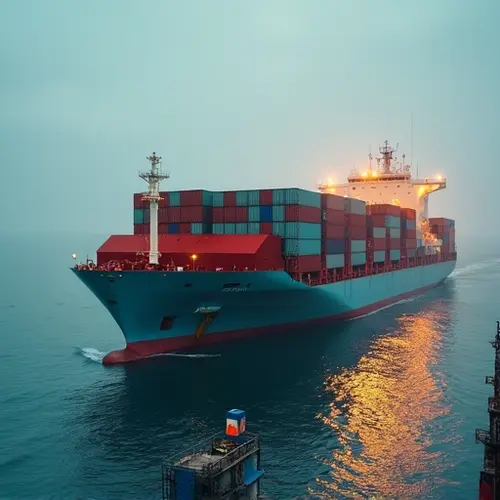
Can Global Shipping Meet Its Carbon Goals?
The International Maritime Organization (IMO) has recently approved landmark regulations aimed at achieving net-zero emissions for global shipping by 2050. These measures, which include a global fuel standard and a pricing mechanism for greenhouse gas (GHG) emissions, mark a significant step toward reducing the environmental impact of the shipping industry.
IMO's Net-Zero Framework
The IMO Net-Zero Framework, approved during the 83rd session of the Marine Environment Protection Committee (MEPC 83), combines mandatory emissions limits with GHG pricing. This framework is the first of its kind to regulate an entire industry sector globally. The measures will apply to large ocean-going ships over 5,000 gross tonnage, which account for 85% of CO2 emissions from international shipping.
Key Components of the Framework
The framework includes two main components:
- Global Fuel Standard: Ships must reduce their annual greenhouse gas fuel intensity (GFI) over time, calculated using a well-to-wake approach.
- Global Economic Measure: Ships emitting above GFI thresholds will need to acquire remedial units to balance their emissions, while those using zero or near-zero GHG technologies will receive financial rewards.
Ensuring Compliance
Compliance will be monitored through two levels of GHG Fuel Intensity targets: a Base Target and a Direct Compliance Target. Ships exceeding these thresholds can balance their emissions by transferring surplus units, using banked surplus units, or contributing to the IMO Net-Zero Fund.
IMO Net-Zero Fund
The fund will collect pricing contributions from emissions and disburse revenues to reward low-emission ships, support innovation in developing countries, and mitigate impacts on vulnerable states like Small Island Developing States (SIDS).
Next Steps
The draft amendments to MARPOL Annex VI will be formally adopted in October 2025, with implementation expected by 2027. The European Commission has welcomed the agreement, emphasizing its role in promoting a just and equitable transition.
Challenges Ahead
While the agreement is a milestone, challenges remain, including the adoption of zero-emission fuels and ensuring global compliance. The shipping industry must accelerate its transition to sustainable practices to meet the IMO's ambitious targets.

 Nederlands
Nederlands
 English
English
 Deutsch
Deutsch
 Français
Français
 Español
Español
 Português
Português